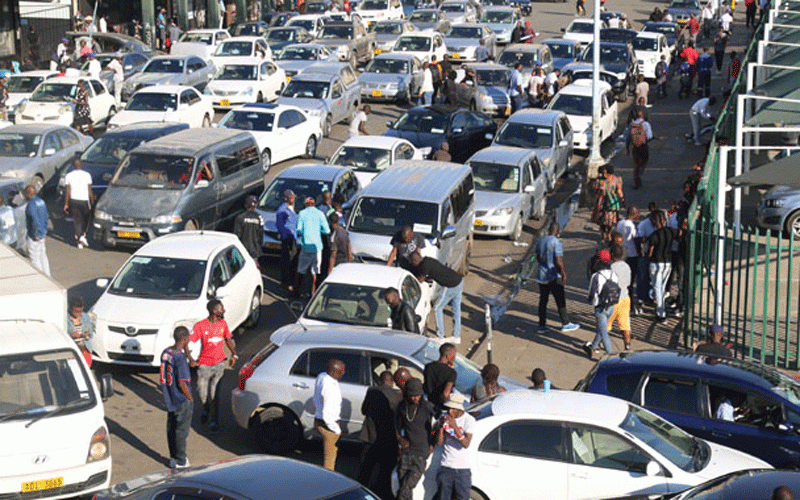
Gone are the days when the exchange of goods and services between businesses and individuals hinged on humanity.
In our present day Zimbabwe, everyone has become an opportunist and nothing can pass through anyone’s hands without the person trying to make a dollar out of it, in kuisa zino fashion.
Kuisa zino is a popular Shona statement that means an intermediary will earn a fee or commission in return for services rendered in matching buyers and sellers.
Now one can add a particular amount to the original price of a selling product without the seller's knowledge.
Nevertheless, nowadays with the chain of intermediaries, money is the rule of trade and without money, “zino” it’s very difficult to make a successful transaction in Harare.
They call it a “Harare deal” where you can find anything.
Fake or original — they can provide what you want at any given time.
It starts from the heart of XMEX Mall in Harare’s central business district pumping deals to the Gulf complex where goods pass through the hands of multiple intermediaries on their way to consumers.
- Chamisa under fire over US$120K donation
- Mavhunga puts DeMbare into Chibuku quarterfinals
- Pension funds bet on Cabora Bassa oilfields
- Councils defy govt fire tender directive
Keep Reading
The distribution often involves a whole “chain” of intermediaries who buy and resell goods and some do not have to buy for resale, but will just add a mark up price ‘zino’ to collect a few dollars from stranded buyers.
When it involves too many hands, obviously the buyers always cry foul like what the Zimdancehall star Killer T said in his song “vapfanha vacho vanobhosha ma suspect, Havana basa inoseenza ku government.”
Loosely translated, it means there are high chances of being duped in whatever transaction that one may do.
This is how a number of individuals are able to put food on the table.
By only adding a mark up price and selling a product that is on sale, they are able to feed their families and send their children to school.
Why, after all, do so many individuals make a living in that business world?
They wake up every day just like formally employed people to hunt for buyers and sellers.
It is as if they have everything on demand and this has killed the confidence of consumers especially when they discover the original price after buying a certain product.
"Warohwa pasi pestoka" (you were beaten under the feat), they will say to victims of overpricing.
Others would pretend to be feeling sorry for you, but it is a willing buyer, willing seller scenario, and it will be too late, 'vakomana vaisa zino'.
Even though there are no rules, the former president of the United States Barack Obama described it correctly when he said: “We are reminded that in the fleeting time we have on this Earth, what matters is not wealth, or status, or power, or fame, but rather how well we have loved and what small part we have played in making the lives of other people better.”
Humanity should still stand by helping fellow citizens without seeing an opportunity to make money.
That operation ‘kuisa zino’ is most likely to be fuelled by a need for rapid cash.
It must be difficult to wait for a monthly wage when one is accustomed to getting 10 times as much by just connecting buyers and sellers and raising the original price.
Living in Zimbabwe today is somewhat like an extreme sport, people make their way of life without considering the next person.
Young or old, they will still see an opportunity to make money whenever there is a transaction.
People ‘hustle’ to fill the unemployment void, but they rob the stranded buyers and sellers in the process.
For people to buy or sell products there is always a chain of intermediaries to fast-forward the transaction before they add a mark up.
Former president of the United States Donald Trump sums it up when he said, “The worst thing you can possibly do in a deal is seem desperate to make it.
“That makes the other guy smell blood, and then you’re dead.”
- Evans Mathanda is a journalist and development practitioner who writes in his personal capacity. For feedback email: [email protected] or call 0719770038 and Twitter @EvansMathanda19










